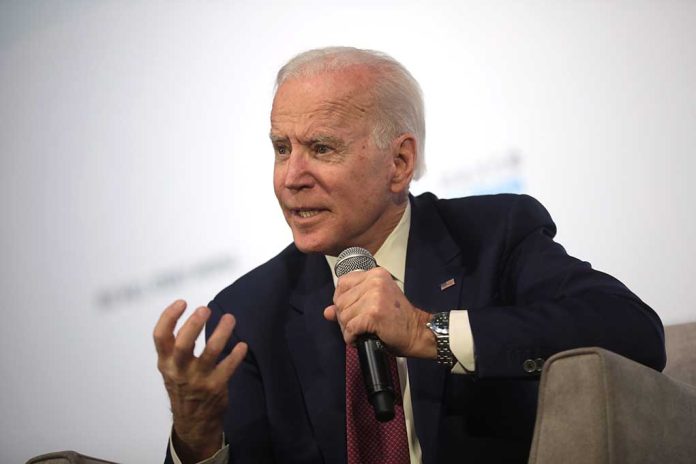
A crucial decision to possibly halt military aid to Israel unfolds as the Biden administration weighs the humanitarian crisis in Gaza against political stakes.
At a Glance
- The Biden administration issued a 30-day ultimatum to Israel to improve Gaza’s humanitarian conditions or face potential impacts on U.S. military aid.
- Israel is scrutinized for blocking critical aid, which some argue contradicts U.S. legal requirements for receiving military aid.
- This U.S. position marks the most comprehensive set of demands to Israel since hostilities began.
- The U.S. demands also reflect domestic political considerations, notably among Arab-American voters in key states.
Biden Administration’s Ultimatum
The Biden administration has sent a clear message to Israel through a letter issued by Secretary of State Antony Blinken and Secretary of Defense Lloyd Austin. The letter demands that Israel demonstrate significant progress in improving humanitarian conditions in Gaza within a 30-day window, warning that failure to comply might affect U.S. military aid. This highlights the serious humanitarian concerns upon which U.S. law mandates unimpeded transfer of humanitarian aid when receiving military support. Israel’s heavy reliance on U.S. military assistance places its actions under increased scrutiny.
The letter identifies critical issues such as the obstruction of humanitarian assistance in northern Gaza. It explicitly calls for a consistent delivery of 350 aid trucks daily and the opening of a fifth border crossing to facilitate humanitarian flow. Furthermore, Blinken and Austin urge Israel to permit the International Red Cross to visit detainees and ensure mechanisms are in place for civilian casualty discussions.
A long-overdue move: the Biden administration’s warning to Israel to allow more humanitarian aid into Gaza is a necessary step. We’ve been calling for military aid to be conditioned on compliance with U.S. and international humanitarian law for over a year. Read more about the…
— Emgage Action (@EmgageAction) October 15, 2024
Political Considerations in Play
Amid looming humanitarian concerns, the Biden administration’s letter is not just a reflection of on-the-ground realities but also a calculated political maneuver. With keen interest in the Arab-American voter base in swing states, the administration’s stance may play a role in forthcoming elections. Officials express urgent concern over deteriorating conditions, with Israel accused of impeding nearly 90% of humanitarian movements, as documented in September’s figures. “We are now writing to underscore the US government’s deep concern over the deteriorating humanitarian situation in Gaza, and seek urgent and sustained actions by your government this month to reverse this trajectory,” the letter added.
Despite public and diplomatic pressure, the bulk of U.S. military aid to Israel continues, even as some bomb shipments face delays. Israeli officials acknowledge the concerns, intending to address them with U.S. counterparts. Nevertheless, this approach by the U.S. government signals potential shifts in foreign policy considerations.
Impacts and Broader Concerns
The humanitarian issues in Gaza arise amid intensified Israeli military operations. These operations, which were initially prompted by Hamas’s assault on southern Israel, have resulted in significant casualties. Humanitarian organizations have expressed alarm over the plight of over 1.7 million Palestinians confined to small areas under dire conditions.
Efforts to circumvent these challenges are visible in U.S. demands for mechanisms overseeing civilian casualties. The call for humanitarian pauses should allow for greater aid distribution and safe inland relocation of the civilian population ahead of harsh winter conditions. Meanwhile, international NGOs appeal to the U.S. to alter its policy to prevent complicity in potential violations of international law.













